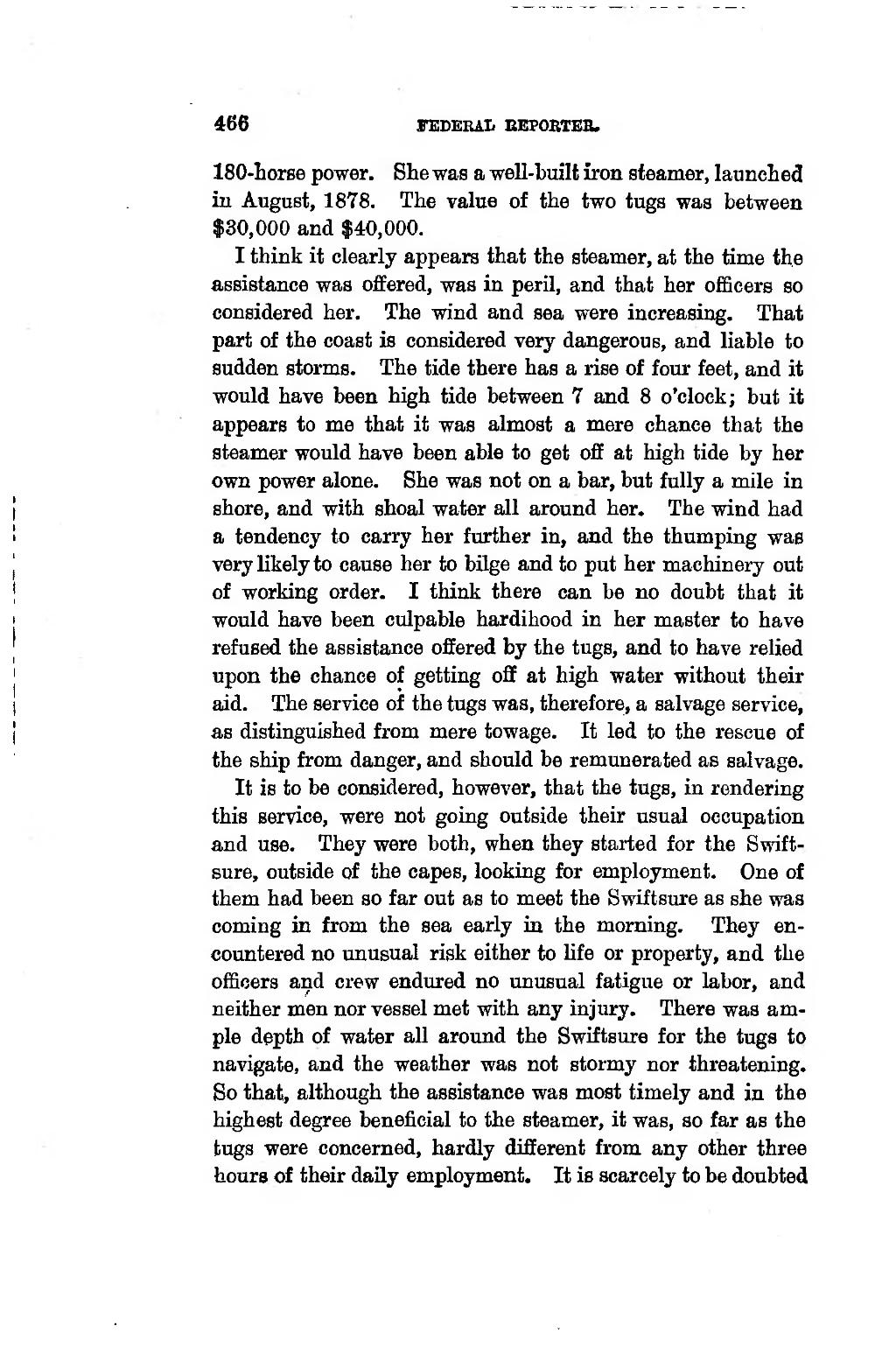466 FEDERAL REPORTER. �180-Iiorse power. She was a well-buîlt iron steamer, launehed in Augast, 1878. The value of the two tuga was between $30,000 and $40,000. �I think it clearly appears that the steamer, at the time the assistance was offered, was in peril, and that her officers so considered her. The wind and sea were increasing. That part of the coast is considered very dangerous, and liable to sudden storms. The tide there bas a rise of four feet, and it would have been high tide between 7 and 8 o'clock; but it appears to me that it was almost a mere chance that the steamer would have been able to get off at high tide by her own power alone. She was not on a bar, but fully a mile in shore, and with shoal water all around her. The wind had a tendency to carry her further in, and the thumping was very likely to cause her to bilge and to put her machinery out of working order. I think there can be no doubt that it would bave been culpable hardihood in her master to bave refused the assistance offered by the tuga, and to have relied upon the chance of getting ofif at high water without their aid. The service of the tugs was, therefore, a salvage service, as distinguished from mere towage. It led to the rescue of the ship from danger, and should be remunerated as salvage. �It is to be considered, however, that the tugs, in rendering this service, were not going outside their usual occupation and use. They were both, when they started for the Swift- sure, outside of the capes, looking for employment. One of them had been so far out as to meet the Swiftsure as she was coming in from the sea early in the morning. They en- countered no unusual risk either to life or property, and the officers and crew endured no unusual fatigue or labor, and neither men nor vessel met with any injury. There was am- ple depth of water all around the Swiftsure for the tugs to navigate, and the weather was not stormy nor threatening. So that, although the assistance was most timely and in the highest degree beneficiai to the steamer, it was, so far as the tugs were concerned, hardly different from any other three hours of their daily employment. It is scarcely to be doubted ����
